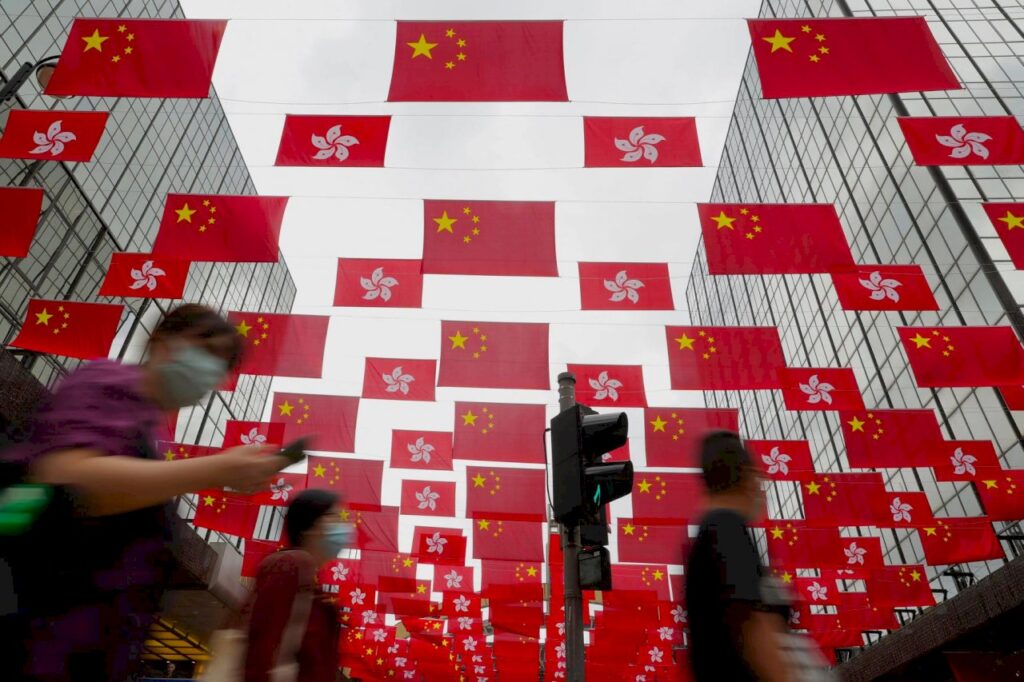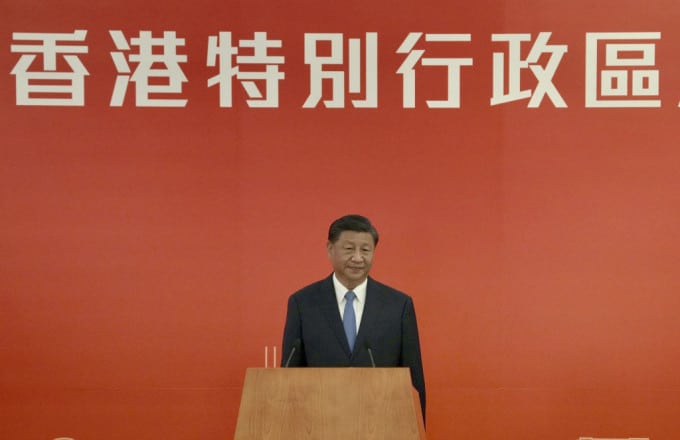The demonstrations are endless and continue to escalate under the banner of civil disobedience. The non-violent resistance advocated by Gandhi did not take place in Hong Kong, but instead became divided. This may be a tragic footnote for the 150th anniversary of his birth. One extreme is waiting for the People's Liberation Army to enter the city, let the central government take over Hong Kong, and expel foreign judges; the other extreme calls for the establishment of a provisional parliament, the organization of civil self-defense forces, and "not cutting off seats even if nuclear bombs are dropped." The two camps grew further and further apart, eventually becoming a tug of war with no winner.
Radical movement makes public opinion conflicted
In the 1960s, which was also the period when Martin Luther King was most active, a large-scale anti-Vietnam War movement was launched in the United States. Under the platform of the non-violent civil rights movement he led, students began with peaceful demonstrations and brewed anti-white supremacist and anti-imperialist trends. Later, the United States sent more troops to the Vietnam battlefield, and the demonstrations escalated into occupation actions. The police and riot squads intervened on the university campus and cleared the area by force, which set off a prairie fire of crowds supporting the students.
During the same period, Martin Luther King was assassinated, and countless people despaired of peaceful reform. Activists vie for control of the student union and launch "Days of Rage" street fighting to bring the intimidation from the war front back to Chicago. After the riots, the split in the student union led them to decide to leave the platform and establish the extremist organization "Weather Underground" to carry out underground armed guerrillas, turning the initial peaceful demonstration into a violent revolution.
The U.S. military bombed Cambodia in 1970, fueling the anti-war movement. The National Guard shot and killed four college students who were protesting, triggering the only nationwide strike in the history of the American student movement. The extreme wing "Weather Underground" planned multiple bombings against the Capitol, the Pentagon, etc. Then-U.S. President Richard Nixon said: "I want demonstrators to break the windows of the Capitol," in the hope that violent images could reverse public opinion. As he estimated, anti-war sentiment was rising, but the anti-war movement became more radical, resulting in a contradictory public opinion in which the majority of people were anti-war, but did not support the anti-war movement. The anti-war movement lost momentum with the end of the Vietnam War, but the tear in American society was not repaired for a long time.
Reversal of public opinion is easy to resolve but difficult to break up
This kind of contradictory public opinion is beginning to show signs in Hong Kong. Precisely because public opinion is not a coin with only two sides, a reversal of public opinion does not mean that the social movement has entered the final stage. If those who support the police condemn arson in downtown areas, they can also criticize the government for adding fuel to the fire; if the establishment faction resists "anti-China chaos in Hong Kong", they can also hold the police accountable for their negligence. If He Lifei acquiesces to the brothers climbing the mountain, they can also refute the protesters' impact on the rule of law; the Wuyong faction hates the law enforcers, and they can also dislike the "air-conditioned military advisor" who is not helping.
Social figures from different spectrums continue to urge the government to lower its status, and have also begun to remind demonstrators to clearly understand their purpose. When the government takes the first step of sincerity, it must use all its political power to deal with pressure from various camps. When demonstrators face persuasion from supporters and even peers, they do so out of regret, not out of denial, nor do they want to marginalize a generation of young people. No matter how today's chaos ends, the long-hidden and deepening public frustration will be the biggest difficulty that Hong Kong will take a long time to resolve.
Ray Poon
Democratic thinking director



